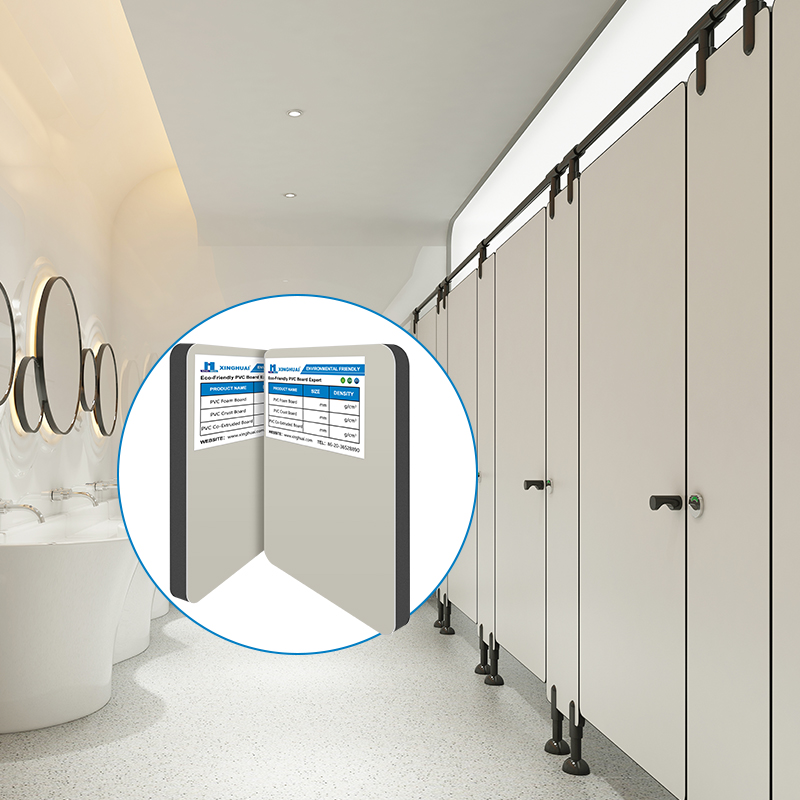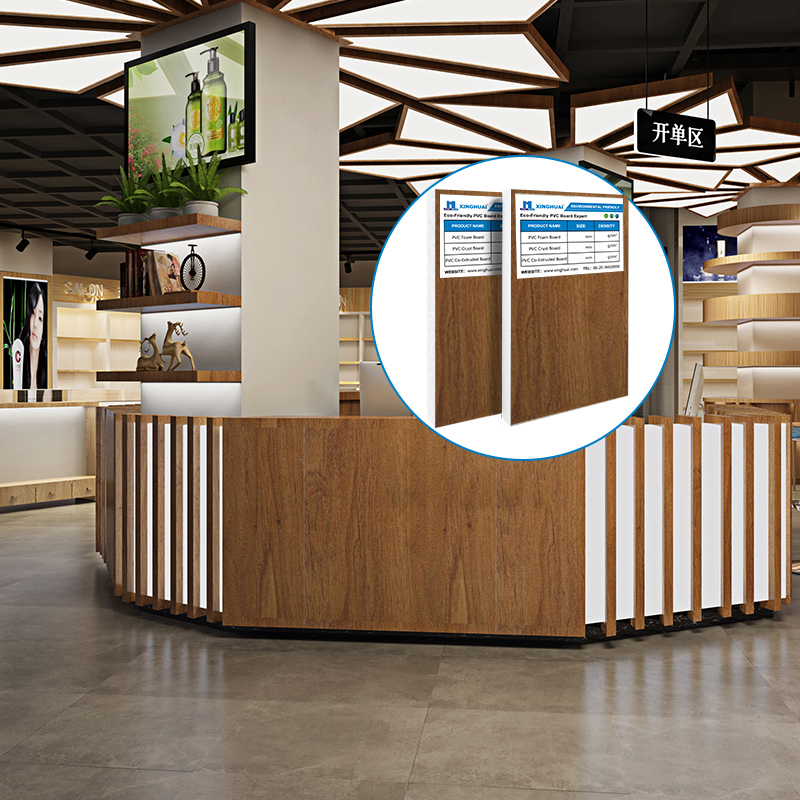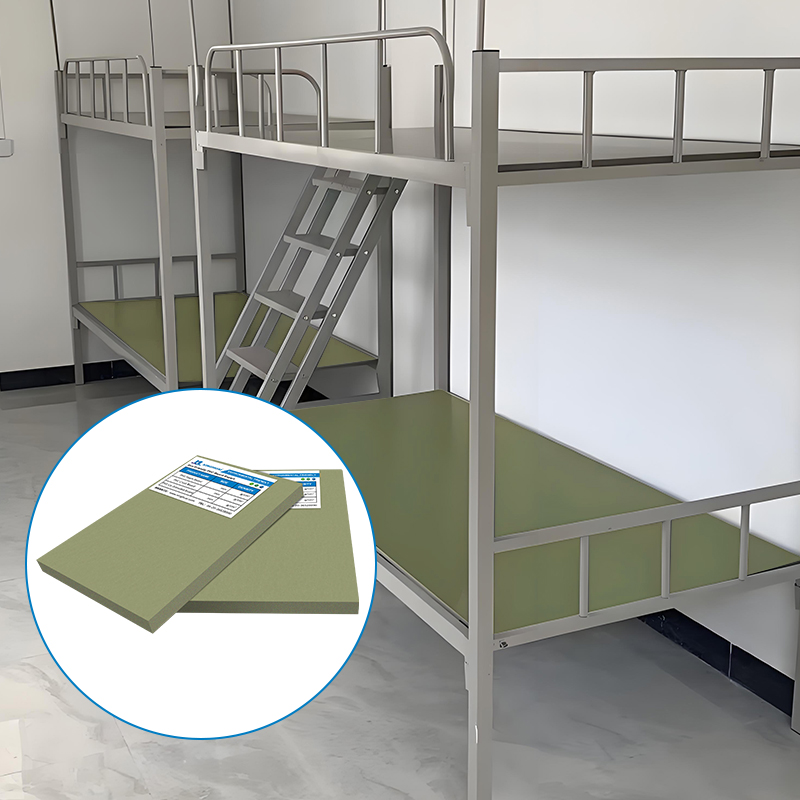PVC skinned boards, a versatile and widely used material in various industries, have a specific density range that defines their performance and applications. Understanding the general density range of PVC skinned boards is essential for selecting the right material for projects involving pvc celuka foam sheet, pvc foam wall panels, and other related products. The density of these boards plays a crucial role in determining their strength, weight, durability, and suitability for different environments, making it a key parameter for manufacturers, contractors, and DIY enthusiasts alike.
The general density range of PVC skinned boards typically falls between 0.5 g/cm³ and 1.2 g/cm³. This range is carefully engineered to balance strength and lightweight properties, making PVC skinned boards ideal for a wide array of applications, from pvc foam wall panels to industrial components. Within this range, the density can vary based on factors such as the thickness of the outer skin, the structure of the inner foam core, and the specific manufacturing processes used. This variability allows manufacturers to produce PVC skinned boards tailored to specific needs, ensuring that there is a suitable option for every project involving pvc foam or pvc foam panels.
At the lower end of the density spectrum, around 0.5 g/cm³ to 0.8 g/cm³, PVC skinned boards are lightweight and offer excellent insulation properties. These low-density boards are often used in applications where weight is a critical factor, such as in the production of pvc foam wall panels for interior decoration. Their lightweight nature makes them easy to handle and install, reducing labor costs and installation time. Additionally, the low density contributes to their excellent thermal and acoustic insulation, making them a popular choice for creating comfortable and energy-efficient living spaces with pvc foam panels. Even in this low range, the integral skin of PVC skinned boards ensures they maintain adequate strength for their intended uses.
In the middle of the density range, from 0.8 g/cm³ to 1.0 g/cm³, PVC skinned boards strike a balance between strength and weight. This density range is highly versatile, making these boards suitable for a wide variety of applications, including pvc celuka foam sheet products. Pvc celuka foam sheet, a type of PVC skinned board known for its smooth surface and uniform structure, often falls within this middle density range, offering the perfect combination of rigidity and lightweight properties. These boards are commonly used in the manufacturing of furniture, signage, and display units, where both durability and aesthetic appeal are important. The middle density range ensures that pvc foam panels in this category can withstand regular use without being overly heavy.
At the higher end of the density range, from 1.0 g/cm³ to 1.2 g/cm³, PVC skinned boards are denser and more rigid, making them suitable for applications requiring enhanced strength and durability. These high-density boards are often referred to as pvc hard foam board, as their increased density gives them superior impact resistance and structural stability. Pvc hard foam board is ideal for use in demanding environments, such as industrial settings, outdoor signage, and high-traffic areas where the material is likely to be subjected to frequent impacts or heavy loads. Even at this higher density, PVC skinned boards remain lighter than many alternative materials, maintaining their advantage as a lightweight yet strong option for pvc foam projects.
The density of PVC skinned boards is closely related to their structural composition, which includes a dense outer skin and a foamed inner core. The outer skin, which is denser than the core, contributes significantly to the overall density of the board. Manufacturers can adjust the thickness and density of the skin to achieve the desired overall density of the PVC skinned board. The inner core, made up of a network of closed cells, is less dense and helps reduce the overall weight of the board. This combination of a dense skin and a lightweight core allows PVC skinned boards to achieve their characteristic density range while offering superior performance compared to solid PVC boards or other types of pvc foam.
Pvc celuka foam sheet, a specific type of PVC skinned board, is known for its consistent density throughout its structure, thanks to its unique manufacturing process. The celuka process ensures that the outer skin is uniformly dense, while the inner core has a controlled cell structure, resulting in a board with a reliable and predictable density within the general range. This consistency makes pvc celuka foam sheet a preferred choice for applications where precise density is important, such as in the production of high-quality pvc foam panels and components that require consistent performance.
When it comes to pvc foam wall panels, the density of the PVC skinned boards used is a critical factor in their performance. Wall panels with a density in the lower to middle range (0.5 g/cm³ to 1.0 g/cm³) are lightweight and easy to install, while still offering sufficient rigidity to maintain their shape and withstand normal wear and tear. These panels provide excellent insulation, helping to regulate indoor temperatures and reduce noise transmission. Higher density pvc foam wall panels,pvc foam in the 1.0 g/cm³ to 1.2 g/cm³ range, are used in areas where increased durability is needed, such as in commercial buildings pvc foam or high-traffic residential areas pvc foam.
Pvc foam, in general, pvc foam encompasses a wide range of products with varying densities, but PVC skinned boards stand out due to their controlled density pvc foam range and consistent performance. Unlike some other types of pvc foam that may have a pvc foam wider or less predictable density range, PVC skinned boards are manufactured to strict specifications, ensuring that their density falls within the 0.5 g/cm³ to 1.2 g/cm³ range. This control makes them a reliable choice for applications where pvc foam consistent density is essential for performance and safety pvc foam.
Pvc hard foam board, pvc foam as a high-density variant of PVC skinned boards, pvc foam offers exceptional strength and rigidity within the upper end of the density range. These boards are designed to withstand heavy loads and harsh conditions, making them suitable for structural applications such as wall cladding,pvc foam industrial shelving, and outdoor furniture. The high density of pvc hard foam board ensures that it can resist impact, bending, and warping, providing long-lasting performance in even the most demanding environments. Despite their high density, these boards are still lighter than many traditional building materials, making them easier to transport and pvc foam install.
Pvc foam panels, pvc foam which include a variety of products such as wall panels, ceiling tiles, and decorative sheets, rely on the controlled density range of PVC skinned boards to deliver their desired properties. Panels with lower density are lightweight and insulating, while those with higher density pvc foam wall panels offer increased strength and durability. Manufacturers can select the appropriate density within the general range to create pvc foam panels tailored to specific applications, ensuring that each panel meets the performance pvc foam wall panels requirements of its intended use. This flexibility in density allows pvc foam panels to be used in a wide range of settings, from residential homes to commercial buildings and industrial facilities.
The manufacturing process of PVC skinned boards plays a significant role in determining their final density. By adjusting factors such as the amount of foaming agent used, the extrusion temperature, and the pressure applied during production, manufacturers can precisely control the density of the boards. This level of control ensures that PVC skinned boards pvc foam wall panels consistently fall within the 0.5 g/cm³ to 1.2 g/cm³ density range, providing reliable performance for all types pvc foam wall panels of applications pvc foam wall panels involving pvc celuka foam sheet, pvc foam wall panels, and pvc foam panels. The ability to fine-tune the density also allows manufacturers to innovate and develop new products with specific pvc foam wall panels density-related properties to meet evolving market needs.
In conclusion, the general density range of PVC skinned boards is between 0.5 g/cm³ and 1.2 g/cm³, a range that balances strength, weight, and performance to make them suitable for a wide variety of applications. From lightweight pvc foam wall panels pvc foam wall panels in the lower density range to durable pvc hard foam board in the higher range, this density spectrum ensures that there is a PVC skinned board for every need. Products such as pvc celuka foam sheet and pvc foam panels pvc foam wall panels rely on this controlled density range to deliver consistent, reliable performance in their respective applications. Understanding this density range is pvc foam wall panels essential for selecting the right PVC skinned board for any project, pvc foam wall panels ensuring optimal performance, durability, and cost-effectiveness. Whether you are working on interior decoration with pvc foam wall panels or industrial applications requiring pvc hard foam board, the density of the PVC skinned board is a key factor that should be carefully considered to achieve the best results.




